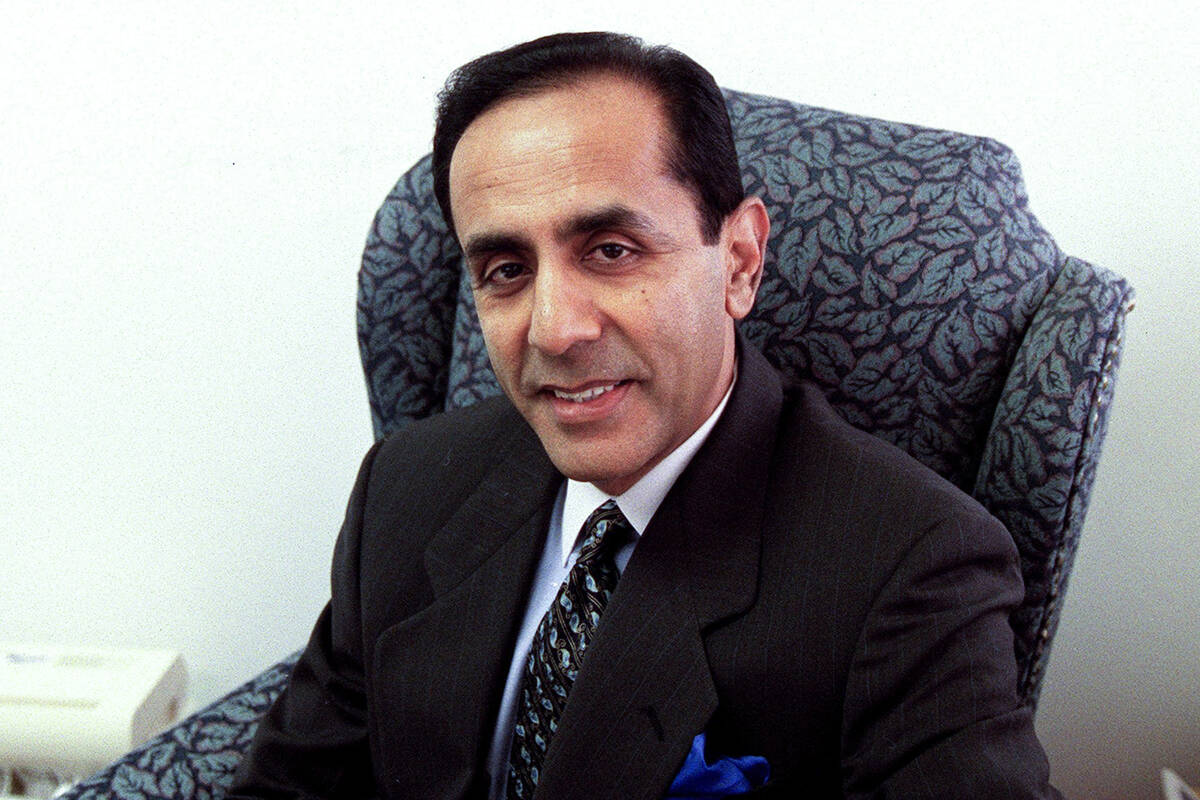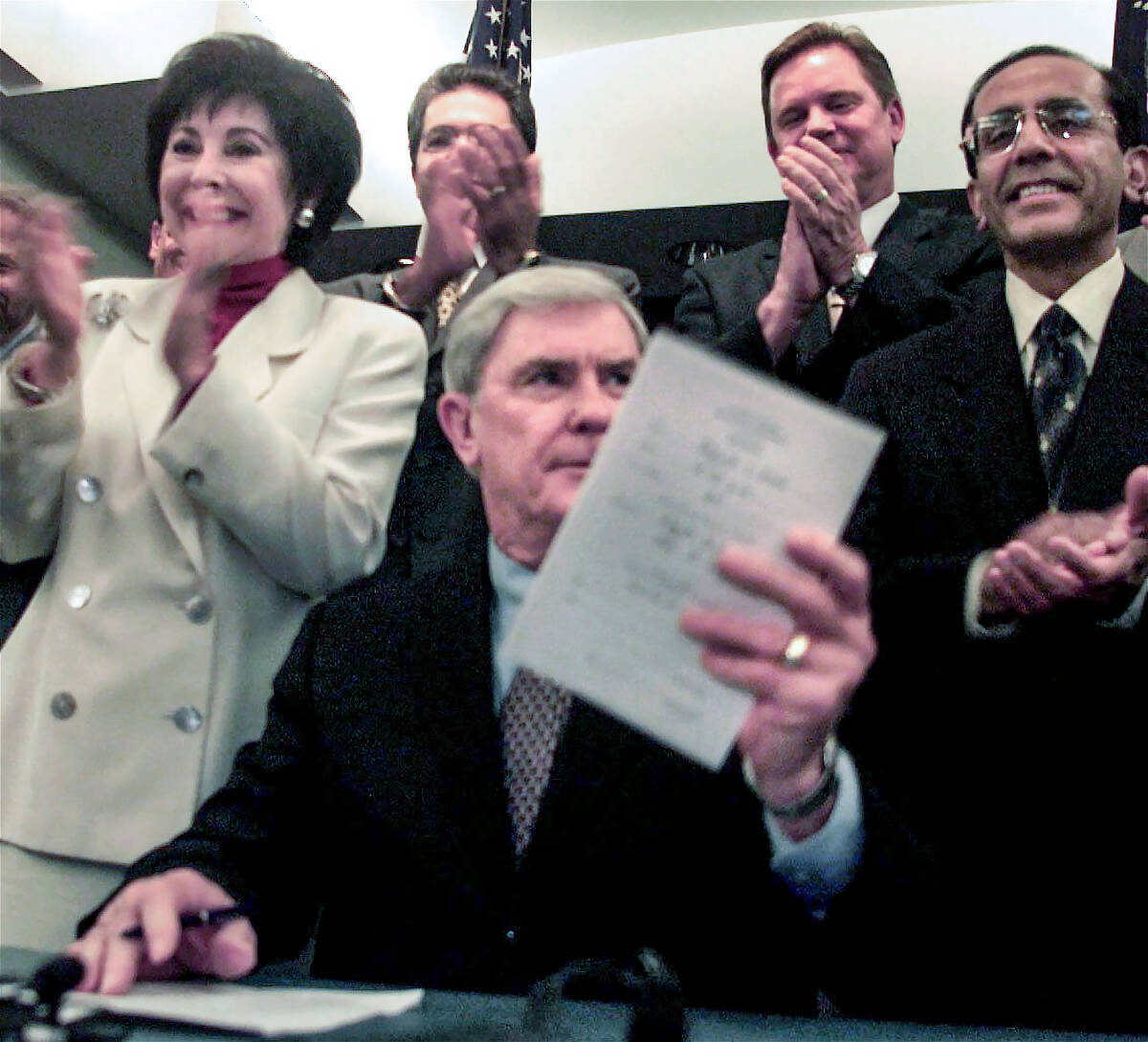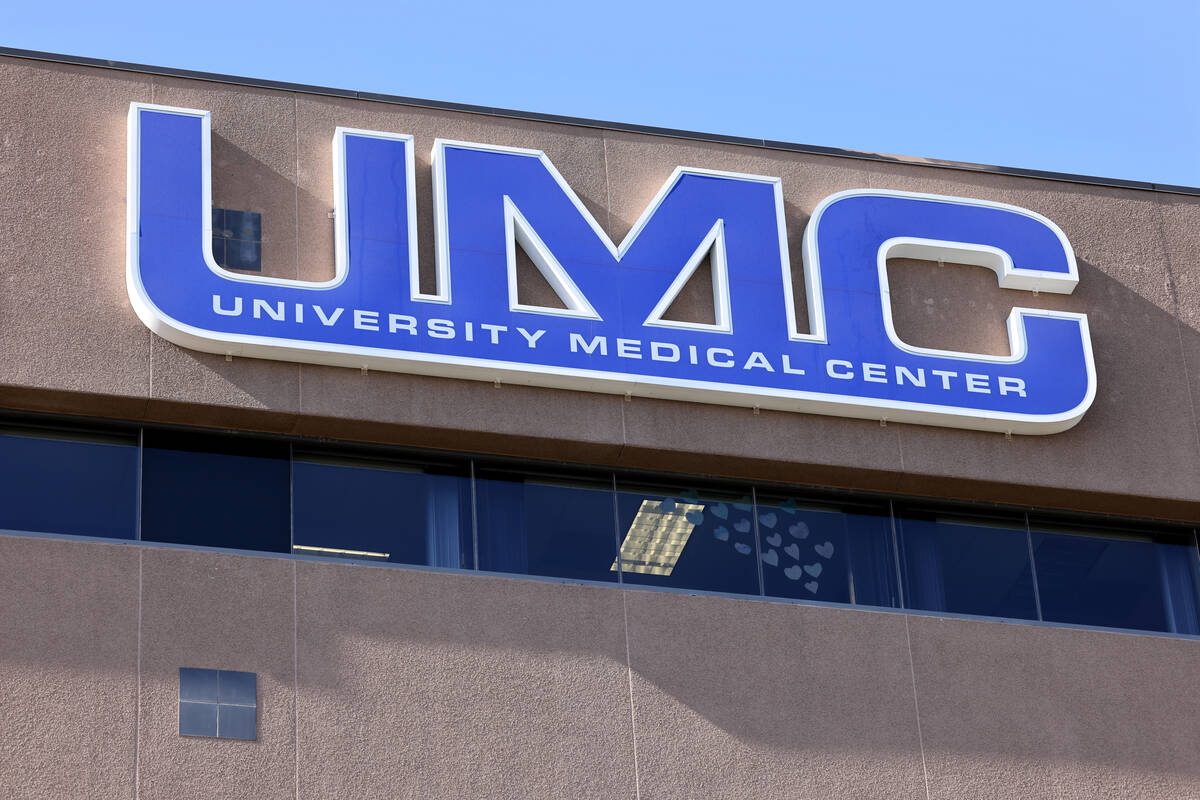‘No-show job’?: Colleagues question well-connected doctor’s UMC contract
Dr. Ikram Khan makes six figures for an advisory position at University Medical Center, but he is rarely seen at Clark County’s public hospital, some current and former colleagues say.
Khan, friend and physician to many prominent Nevadans, has the title of physician adviser for case management functions, a position one former UMC leader described as a “no-show job.”
The former leader, who spoke on the condition of anonymity, as well as physicians who have worked with Khan and spoke on the record, said the 75-year-old doctor is infrequently consulted and that his exact role is unclear to them.
“Rarely did anyone get any feedback on anything,” said Dr. Thomas Zyniewicz, a former physician adviser for out-patient performance, recalling complaints he heard. “Why are we still paying this guy?”
Since 2011, Quality Care Consultants, the business owned by Khan and Dr. Javaid Anwar, has had a contract with UMC that pays $115,200 annually, public records show. Of the pair, Khan primarily handles the UMC contract, according to Mason Van Houweling, UMC’s chief executive officer.
In 2022, the hospital hired Dr. Jim Christensen as the physician adviser for clinical documentation and quality improvement. Since then, “we haven’t had to use (Khan) or pretend to use him,” according to the former hospital leader, who declined to let the Review-Journal use his name out of concern for career repercussions.
A key component of Quality Care Consultants’ contract is so-called utilization management or review, which involves evaluating the appropriateness and medical necessity of a patient’s admission to the hospital, the length of stay and services provided. The contract requires evaluating care on a case-by-case basis as well as evaluating, and helping to improve, the overall utilization review function.
UMC could not document how many cases Khan has reviewed.
“We do not have readily accessible data to generate a report detailing the number of cases reviewed by Khan on a monthly basis,” hospital spokesman Scott Kerbs wrote in an email.
The hospital said it did not have access to Khan’s calendar because he is not an employee, but UMC provided email invitations to five meetings in 2022 between Khan and hospital staff. UMC Chief Financial Officer Jennifer Wakem said the hospital recently increased the frequency of scheduled meetings.
Hospital administrators insisted Khan’s work is valuable to the organization.
“He’s a well-respected physician,” Wakem said. “He has the backing of our medical staff. He’s been in town a long time. He knows everybody. Those relationships are important to us. … If we need a cardiologist or a rheumatologist, he knows who to call.”
Khan referred a request for comment to attorney Steven Parsons, who said that Khan and Anwar provide excellent guidance. Both, he said, are board-certified in utilization review.
“Their care is exceptional,” he said. “The respect of the hospitals is exceptional. They are often the ones that were called on in difficult circumstances, to modulate what’s going on in a controversy and to bring things to a conclusion. That’s their skill. And people are jealous of that.”
A statement from the consultancy group said there “has never been a single concern about performance which QCC has been apprised of in writing.”
Emails obtained by the Review-Journal through a public records request show UMC’s administration considered ending Khan’s contract in 2022 but extended it later that year and again in 2023. Wakem said a former case management director had advised against the extension, but she saw value in Khan’s contributions.
Some colleagues attribute the contract’s longevity to Khan’s connections, including his relationship with the late Democratic U.S. Sen. Harry Reid.
‘In charge of what?’
While there was little documentation of Khan’s work, hospital records show Christensen reviews on average 500 cases a month. The calendar of Christensen, who is on staff, shows almost daily scheduled meetings with staff. He makes $275,000 a year.
Wakem said the hospital could document Christensen’s case reviews because he uses UMC’s electronic records system.
Wakem said some case managers prefer to use Christensen, who is on-site, and others Khan, with whom they have worked for years. With more than 80 discharges from the hospital daily, there’s enough work for both at the 541-bed hospital, she said.
Van Houweling, the hospital’s CEO, said about Khan’s interaction with staff, “Most of the activity is a quick phone call or a more in-depth phone call.”
Parsons said the doctor has a couple dozen or more calls per day with hospital staff.
Van Houweling described Khan’s role as more strategic while Christensen’s is more tactical and day-to-day, “working side by side with our doctors and nurses.”
Christensen referred a request for comment to UMC’s communications team.
Van Houweling and Wakem said Khan works with insurance companies to ensure that the hospital is paid for the services it provided.
“I have Dr. Khan helping for those tougher conversations,” she said.
Can’t access computer system
Zyniewicz, a longtime doctor at UMC, said he was surprised several years ago when he first encountered Khan in a meeting.
“He showed up and said he was in charge,” said Zyniewicz, who was in a physician adviser position before his retirement in 2022. “I said, ‘In charge of what?’”
Like others interviewed for this story, Zyniewicz criticized Khan for not using Epic, the electronic medical records software the hospital launched about seven years ago.
“My frustration was he … had no idea how to even get in the computer and look for anything,” Zyniewicz said. “That’s our bible to find our source of truth, and he couldn’t even look. He can’t look up charts, he can’t run reports. So how does he help anybody?”
He and others said voluminous documents would have to be printed out for Khan, causing delays.
Zyniewicz said he did not consult with Khan on cases but did so with Christensen daily.
Parsons said a greater reliance on electronic records insisted upon by a former employee was intended to exclude his clients Khan and Anwar.
“I don’t want to damn my clients, but you know, at the ages of 70 are not the time to take a mode of working and say you’re now going to be using this technology,” he said.
Van Houweling said Khan is available when he needs him.
“He’s definitely involved and engaged,” he added. “The amount that we compensate Dr. Khan, he earns every penny of that.”
‘In the shadows’
Dr. Jerry Cade, who for 42 years has been on the medical staff at UMC, said he rarely sees or interacts with Khan.
“I was never completely clear about his role at the hospital,” he said.
Cade said that before the launch of the Epic medical software, he had expected Khan to assist with the transition from paper to electronic records by defining the utilization-review workflow.
“But he was just in the shadows,” he said. “I never saw him.”
The doctor and the anonymous hospital leader cited Khan’s friendship with Reid as a possible explanation for some of Khan’s clout.
Reid recommended Khan to President Bill Clinton for an appointment to a federal committee advising the U.S. secretary of defense.
“Virtually all the prominent Nevada politicians and business people I know have been these doctors’ patients … over the 40-plus years I’ve been with them,” Parsons said about Khan and Anwar. “I don’t know how you unring that bell.”
Campaign finance reports show that Khan’s political action committee, Pakistani American Nevadans, has given money to both Democratic and Republican candidates. Khan grew up in Karachi, Pakistan, and came to the United States as a medical resident in the early 1970s.
Khan, a general surgeon, has served as a medical adviser to former Republican Govs. Kenny Guinn and Jim Gibbons. He was appointed to federal and state boards, including the Nevada State Medical Board of Examiners.
In 2008, Khan stepped down as Gibbons’ adviser in the midst of a medical scandal at a clinic for which he’d done consulting work. Quality Care Consultants served as a consultant to the Endoscopy Center of Southern Nevada, which health investigators linked to a cluster of hepatitis cases. The center, which investigators said had used unsafe medical practices, had hired the consultants to review its policies and procedures.
In 2019, then-Gov. Steve Sisolak named Khan to the new state Patient Protection Commission. Khan is currently on the board of directors for Sunrise Hospital and Medical Center, hospital spokesperson Marissa Mussi wrote in an email.
The former UMC hospital leader, who spoke on the condition of anonymity, described keeping the contract with Khan as “wrong.”
“Patient care shouldn’t be compromised because of the ghost of Harry Reid,” he said.
Van Houweling responded, “That’s a clever little slogan, but it doesn’t apply here at UMC.”
Contact Mary Hynes at mhynes@reviewjournal.com. Follow @MaryHynes1 on X. Hynes is a member of the Review-Journal’s investigative team, focusing on reporting that holds leaders and agencies accountable and exposes wrongdoing.




















